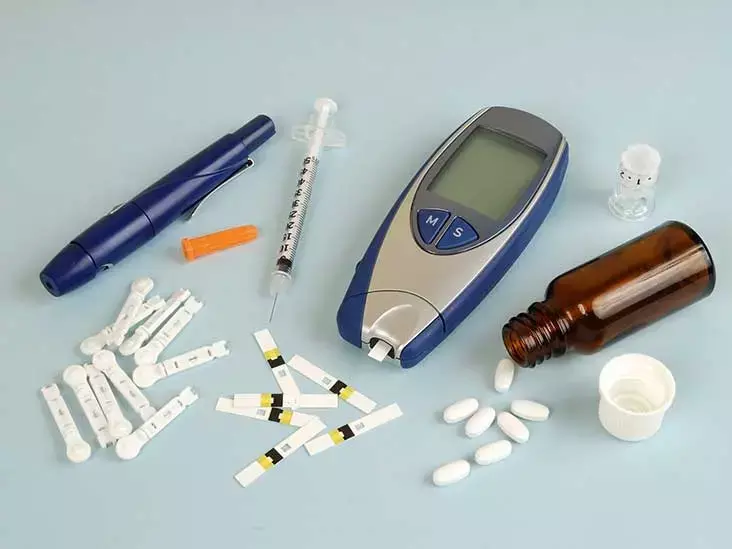- Home
- Medical news & Guidelines
- Anesthesiology
- Cardiology and CTVS
- Critical Care
- Dentistry
- Dermatology
- Diabetes and Endocrinology
- ENT
- Gastroenterology
- Medicine
- Nephrology
- Neurology
- Obstretics-Gynaecology
- Oncology
- Ophthalmology
- Orthopaedics
- Pediatrics-Neonatology
- Psychiatry
- Pulmonology
- Radiology
- Surgery
- Urology
- Laboratory Medicine
- Diet
- Nursing
- Paramedical
- Physiotherapy
- Health news
- Fact Check
- Bone Health Fact Check
- Brain Health Fact Check
- Cancer Related Fact Check
- Child Care Fact Check
- Dental and oral health fact check
- Diabetes and metabolic health fact check
- Diet and Nutrition Fact Check
- Eye and ENT Care Fact Check
- Fitness fact check
- Gut health fact check
- Heart health fact check
- Kidney health fact check
- Medical education fact check
- Men's health fact check
- Respiratory fact check
- Skin and hair care fact check
- Vaccine and Immunization fact check
- Women's health fact check
- AYUSH
- State News
- Andaman and Nicobar Islands
- Andhra Pradesh
- Arunachal Pradesh
- Assam
- Bihar
- Chandigarh
- Chattisgarh
- Dadra and Nagar Haveli
- Daman and Diu
- Delhi
- Goa
- Gujarat
- Haryana
- Himachal Pradesh
- Jammu & Kashmir
- Jharkhand
- Karnataka
- Kerala
- Ladakh
- Lakshadweep
- Madhya Pradesh
- Maharashtra
- Manipur
- Meghalaya
- Mizoram
- Nagaland
- Odisha
- Puducherry
- Punjab
- Rajasthan
- Sikkim
- Tamil Nadu
- Telangana
- Tripura
- Uttar Pradesh
- Uttrakhand
- West Bengal
- Medical Education
- Industry
Adjuvant Therapy with Dapagliflozin bests Insulin Dose Escalation in Diabetes: Study

Nearly 1 in 4 patients with type 2 diabetes mellitus eventually require insulin therapy because of progressive deterioration of glycemic control. A recent study suggests that dapagliflozin therapy significantly improve diabetes outcomes when used as an adjuvant therapy with insulin. The study findings were published in the Diabetic Research and Clinical Practice on April 29, 2021.
Dapagliflozin, a competitive and highly selective inhibitor of sodium-glucose cotransporter 2 reduces renal glucose reabsorption, increases renal glucose excretion and reduces hyperglycemia in a dose-dependent manner. Because dapagliflozin acts independently of insulin, it may provide additional glycemic control when used with insulin. Therefore, researchers of the Seoul National University College of Medicine and Seoul National University Bundang Hospital, Seongnam, South Korea, conducted a study to assess the efficacy and tolerability of adjunct therapy with a sodium-glucose cotransporter-2 inhibitor, dapagliflozin, compared with insulin escalation for patients with uncontrolled type 2 diabetes on current insulin therapy.
It was a 12-month retrospective case-control study of patients with glycated haemoglobin (HbA1c) > 7% on insulin therapy. At baseline, the patients were randomised to receive add-on therapy with dapagliflozin (10 mg once daily) (study group) or titrated increases of their existing insulin dose by a mean of 21.6% (control group). The major outcome assessed was the change in HbA1c after 12 months. The researchers also assessed the changes in fasting plasma glucose, postprandial 2-h glucose levels, insulin requirements, and body weight.
Key findings of the study were:
- After 12 months, the researchers found that the reduction in HbA1c was significantly greater in the dapagliflozin group than in the control group (from 8.9 ± 1.2% to 8.0 ± 1.0% vs 9.1 ± 1.2% to 8.7 ± 1.5%, respectively).
- However, they noted that the results for fasting plasma glucose and postprandial 2-h glucose were similar.
- They also found that dapagliflozin therapy significantly reduced systolic blood pressure (−4.7 mmHg) and body weight (−1.4 kg) but, body weight increased by 0.6 kg in the control group.
- They observed fewer hypoglycemic events in the study group than in the control group (18.5% vs 32.6%).
- They also noted that daily insulin escalation eventually increased in the control group and decreased in the dapagliflozin group.
The authors concluded, "As an adjunct to insulin therapy, dapagliflozin therapy significantly improved glycemic control, with the clinical advantages of weight loss, insulin sparing, and less hypoglycemia."
For further information:
Medical Dialogues Bureau consists of a team of passionate medical/scientific writers, led by doctors and healthcare researchers. Our team efforts to bring you updated and timely news about the important happenings of the medical and healthcare sector. Our editorial team can be reached at editorial@medicaldialogues.in.
Dr Kamal Kant Kohli-MBBS, DTCD- a chest specialist with more than 30 years of practice and a flair for writing clinical articles, Dr Kamal Kant Kohli joined Medical Dialogues as a Chief Editor of Medical News. Besides writing articles, as an editor, he proofreads and verifies all the medical content published on Medical Dialogues including those coming from journals, studies,medical conferences,guidelines etc. Email: drkohli@medicaldialogues.in. Contact no. 011-43720751


